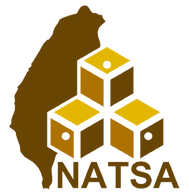
 The North American Taiwan Studies Association (NATSA) will hold its next annual conference on June 12-15, 2015, on the campus of Harvard University. The call for papers has just been posted; the 2015 theme is "Motions and the Motionless: (Dis/Re-) Connecting Taiwan to the World." The deadline to submit proposals is December 31, 2014. Additional details can be found at the conference website, here. The formal announcement is below.
0 Comments
 On November 10, the Taiwan Democracy Project will host Dan Blumenthal of the American Enterprise Institute (AEI) for a talk on the latest developments in cross-Strait politics. Mr. Blumenthal is director of Asian Studies at AEI, where he focuses on East Asian security issues and Sino-American relations. His talk is provocatively entitled, "Time for Xi Jinping to Follow Chiang Ching-kuo's Path?" The full abstract is below. The talk is free and open to the public; you are encouraged to RSVP at the event page, here. In addition to his duties at AEI, Mr. Blumenthal is also the John A. van Beuren Chair Distinguished Visiting Professor at the U.S. Naval War College. Blumenthal has both served in and advised the U.S. government on China issues for over a decade. From 2001 to 2004, he served as senior director for China, Taiwan, and Mongolia at the Department of Defense. Additionally, he served as a commissioner on the congressionally-mandated U.S.-China Economic and Security Review Commission since 2006-2012, and held the position of vice chairman in 2007. He has also served on the Academic Advisory Board of the congressional U.S.-China Working Group. Blumenthal is the co-author of An Awkward Embrace: The United States and China in the 21st Century (AEI Press, 2012), and coeditor of Strategy in Asia: The Past, Present, and Future of Regional Security (Stanford University Press, 2014). Time for Xi Jinping to Follow Chiang Ching-kuo's Path?
Recently Ma Ying-jeou called upon Xi to finish Deng Xiaoping's revolution and begin the process of moving to a constitutional democracy. Is Taiwan a model of Chinese democracy? How would democratization in China impact the future of ROC-China ties? How would a democratized China affect US interests in the Asia-Pacific? The American Political Science Association's Conference Group on Taiwan Studies (CGOTS) has posted its call for papers. CGOTS is one of APSA's "related groups" organizations. Founded in 1990, it serves to promote Taiwan studies in the broader political science community, as well as to foster connections between Taiwan-based and U.S.-based scholars with substantial research interests in Taiwan. For applicants with a Taiwan-related proposal, submitting to CGOTS can substantially improve one's chances of acceptance to the conference. The formal call for papers is reposted below; the deadline to submit applications is December 1, 2014. The 2015 American Political Science Association (APSA) Annual Meeting will be held from September 3-6 in San Francisco, CA. The conference theme is “Diversities Reconsidered: Politics, and Political Science, in the 21st Century.”
CGOTS invites paper and panel proposals on Taiwan’s domestic politics and international relations that are consistent with the conference theme of “Diversities Reconsidered: Politics, and Political Science, in the 21st Century.” Notwithstanding the deepening of globalization and accelerating trends of cross-national socioeconomic interactions and diffusion of policies and behaviors, we continue to witness a great deal of diversity across and within regions, nations, and states. Hence, how have Taiwan’s burgeoning civil society and social institutions impacted the island’s democratic process and identity politics? How have increasing diversities in the marketplace of ideas, interests, identities, and media networks contributed to Taiwan’s socioeconomic, foreign, and cross-strait policies? In turn, how do Taiwan’s external environment and relations shape its democracy, social fabrics, and national security? Are Taiwan’s domestic and foreign policy choices experiencing greater constraints or opportunities in the 21st century? In addition, we are also interested in receiving proposals that use different theoretical paradigms and methodological approaches to tackle questions raised by social movements, communication, identity, institutions, and security studies. Our hope is to connect Taiwan Studies to the broader political science literature, use Taiwan as a case for theory development, and/or compare Taiwan with other countries. Please send proposals through the APSA website (https://www.apsanet.org/content_21569.cfm). If the website is not accessible to you, you may send proposals to Professor Dean P. Chen ([email protected]), CGOTS Coordinator. The deadline for proposals is December 1, 2014. Decisions on the proposals will be communicated to you in February 2015. Travel support for CGOTS panelists is subject to the availability of external funding. My new column at Ketagalan Media is on electoral reform in Taiwan, and what form it should take: Read the whole thing here. Last week, the Taiwan Citizen Union (公民組合) announced that it would register as a political party and field candidates in the 2016 legislative elections. Its stated agenda is political reform, beginning with the electoral system. That’s the right place to start, because as currently constituted, Taiwan’s electoral rules make it nearly impossible for small political parties to win more than a couple of the legislature’s 113 seats. Unless the electoral system is changed, the TCU, like hundreds of parties before it, is probably destined to end up as a historical footnote... On October 17-18, 2014, the Taiwan Democracy Project will put on our annual conference on Taiwan's democracy. This year's theme is the politics of polarization. The conference is free and open to the public; you are encouraged to register at the official event page, here. The formal announcement is below.  Over the past year and more, Taiwan’s political elite has been deadlocked over the question of deepening economic relations with the People’s Republic of China. This controversial issue has led to a standoff between the executive and legislative branches, sparked a frenzy of social activism and a student occupation of the legislature, and contributed to President Ma Ying-jeou’s deep unpopularity. On October 17-18, the Taiwan Democracy Project at CDDRL, with the generous support of the Taipei Economic and Culture Office, will host its annual conference at Stanford University to examine the politics of polarization in Taiwan. This conference will bring together specialists from Taiwan, the U.S., and elsewhere in Asia to examine the sources and implications of this political polarization in comparative perspective. It will include a special case study of the Trade in Services Agreement with China that triggered this past year’s protests, as well as a more general overview of the politics of trade liberalization in Taiwan, prospects for Taiwan’s integration into the Trans-Pacific Partnership and other regional trade agreements, and a consideration of the implications for Taiwan’s long-term democratic future. Conference speakers will include: Chung-shu Wu, the president of the Chung-hwa Institute of Economic Research (CIER) in Taipei; Steve Chan of the University of Colorado; Roselyn Hsueh of Temple University; Yun-han Chu, the president of the Chiang Ching-kuo Foundation; and Thitinan Pongsudhirak of Chulalongkorn University in Bangkok. Panels will examine the following questions: 1. What are the sources and implications of political polarization in Taiwan, and how have these changed in recent years? 2. How does Taiwan’s recent experience compare to political polarization in other countries in Asia (e.g. South Korea, Thailand) and elsewhere (the US)? 3. To what extent does the latest political deadlock in Taiwan reflect concern over the specific issue of trade with the People’s Republic of China, versus a deeper, systemic set of problems with Taiwan’s democracy? 4. How are globalization and trade liberalization reshaping Taiwan’s domestic political economy, and what are the prospects for forging a stronger pro-trade coalition in Taiwan that transcends the current partisan divide? The conference will take place October 17-18 in the Bechtel Conference Room in Encina Hall at Stanford University. It is free and open to the public. The full conference agenda is available here.
Ma The Executor Over his 30+ year political career, Ma Ying-jeou has had zero legislative experience. Ma got his start in politics during the martial law era as an aide in the presidential office and English interpreter to Chiang Ching-kuo. Since then, his entire career has been in executive offices of one kind or another: deputy secretary-general of the KMT, director of the cabinet-level Research, Development, and Evaluation Commission, chair of the Mainland Affairs Council (see photo above), and finally as Minister of Justice (1993-96) under Lee Teng-hui. From there, he went on to serve two terms as mayor of Taipei (1998-2006), became chairman of the KMT in 2005, and then started preparing his campaign for president as soon as he left the mayor's office. In none of those positions did he have much day-to-day interaction with legislators, or ever have to negotiate with them on equal terms. Nor do most of his close aides and cabinet ministers have any legislative experience, either. Ma has consistently favored ministers with academic or bureaucratic backgrounds over those with previous careers in elected office. In fact, I cannot identify a single cabinet-level minister who's actually held a seat in the LY in the past. Of Laws and Sausages Why might this matter? On the one hand, there are good reasons for appointing people who, you know, actually know something about the issues their ministries oversee (unlike, say, the infamous W.H. Smith of H.M.S. Pinafore fame). And I don't think anyone can fairly criticize the credentials of most of Ma's appointees--most of them hold advanced degrees, doctorates even, in their respective fields, and either have many years experience in the bureaucracies that they now oversee or held prestigious academic positions before joining the cabinet. On the other, the lack of any cabinet ministers or close aides with legislative experience is a striking illustration of just how much Taiwan's government officials and elected legislators inhabit separate worlds. For comparison, it would be highly unusual in the U.S. not to include any former members of Congress in the presidential cabinet or other key positions. The current Obama administration cabinet, for instance, includes the former senators John Kerry as Secretary of State, and before him, Hillary Clinton; Chuck Hagel as Secretary of Defense; Joe Biden as Vice President; and of course President Obama himself, who served four years as a senator from Illinois. Obama also plucked his first chief of staff, Rahm Emanuel, straight from the Democratic leadership in the House of Representatives, giving him someone with a deep understanding of Congress and considerable contacts and influence there. Emanuel subsequently played a central role shepherding Obama's major policy initiatives through Congress, including health care reform, the stimulus package, and financial regulation. Over the last two years, I think Ma could have used some people like Rahm Emanuel around: people who actually have personal experience in the "sausage factory" that is lawmaking in most legislatures. If there were, they might have convinced Ma to change his strategy for signing and passing cross-Strait agreements.
Remarkably, only a few key KMT members of the legislature received any kind of briefings on the Cross-Strait Services in Trade Agreement (CSSTA) while it was still being negotiated, and it's not clear those contained anything more than a general discussion of procedures rather than specific issues at stake. In hindsight, that looks like a major strategic error on Ma's part. One might argue that it's a good thing legislators can't get their hands on trade negotiations and try to insert all kinds of special provisions to protect their favorite industries. But I think it's clear by now that Ma didn't help his government's case by keeping the entire legislature in the dark about the CSSTA, even the president's nominal allies. Aides with legislative experience might also have talked Ma out of his attempt to expel Wang Jin-pyng from the legislature last September. They might have made the case to Ma that I've made in the previous posts: that the KMT caucus was his chief problem, rather than Wang or the DPP, and that he needed to focus his government's outreach on the caucus rather than attempt to take Wang out of the picture. Lawmakers and Executives: Competing Worldviews Perhaps the most important implication of the Ma-Wang battle from last year is that there's a power shift in Taiwan politics, and it's not going very smoothly. The Legislative Yuan is now indispensable to policy-making in a way that it's never been before. Yet much of the executive branch still wants to act like the old days, when the president and his close advisors set policy and bureaucrats had wide latitude to execute as they saw fit. That model was breaking down even in the 1990s, and under divided government during the Chen years, it all but ceased to exist. But a significant part of the bureaucracy and the KMT leadership appeared to expect Ma's election to bring a return to the old days of legislative deference to executive priorities. It hasn't played out that way. And it's taking the executive branch, and most importantly Ma, a long time to realize things have fundamentally changed even when the KMT has a one-party majority in the Legislative Yuan. I'd like to end with something Frozen Garlic posted about a year ago. At the end of a long and prescient post, he suggested that executives and legislators in Taiwan have fundamentally different world views: Presidents in many countries view the legislature as corrupt and parochial. Legislators, they think, are elected by special interests and depend on clientelism, factions, vote-buying, pork, locally influential extremists, and demagoguery to win their seats. How can they represent the people? In contrast, the president is elected by all the people in an election with a much stronger focus on issues that the people care about. The executive branch presents policies that balance the needs of all the people. When the special interests based in the legislature use their influence to emasculate the president’s policies, this is a travesty. Democracy is subverted! I'd submit that Taiwan's political development over the next decade is going to turn more on how this inter branch conflict plays out than any other single factor. It'll be fascinating to watch.
|
About MeI am a political scientist with research interests in democratization, elections and election management, parties and party system development, one-party dominance, and the links between domestic politics and external security issues. My regional expertise is in East Asia, with special focus on Taiwan. Archives
January 2024
Categories
All
|
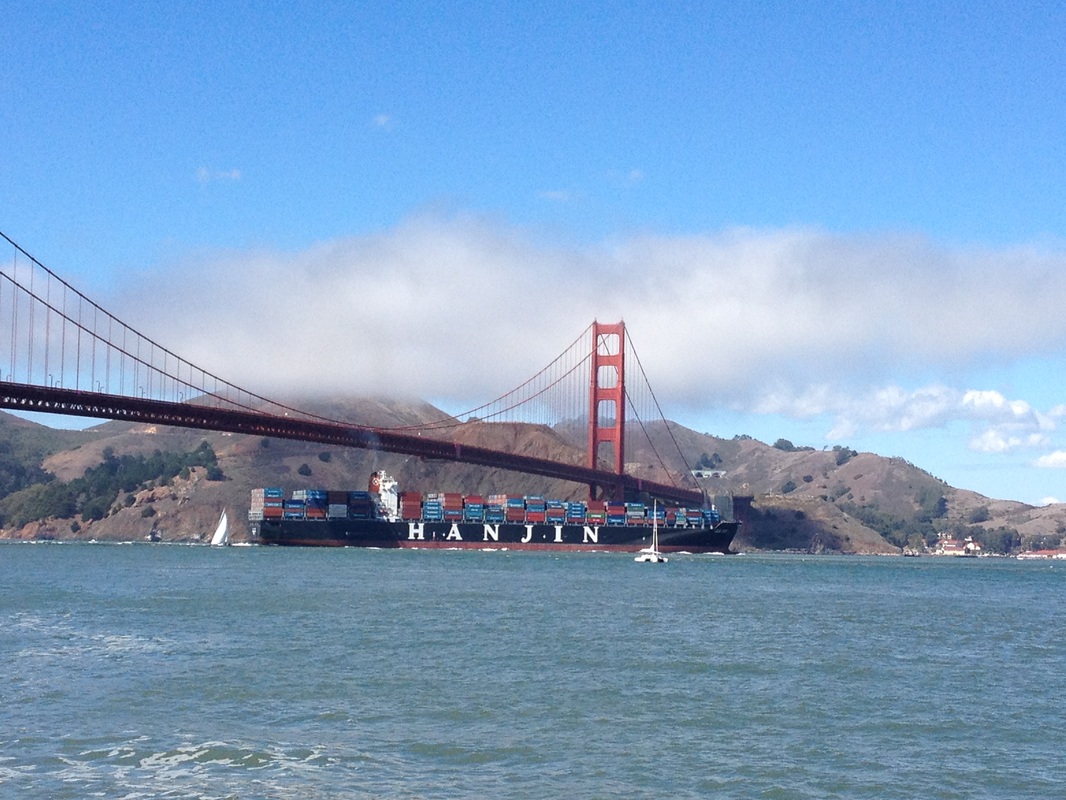
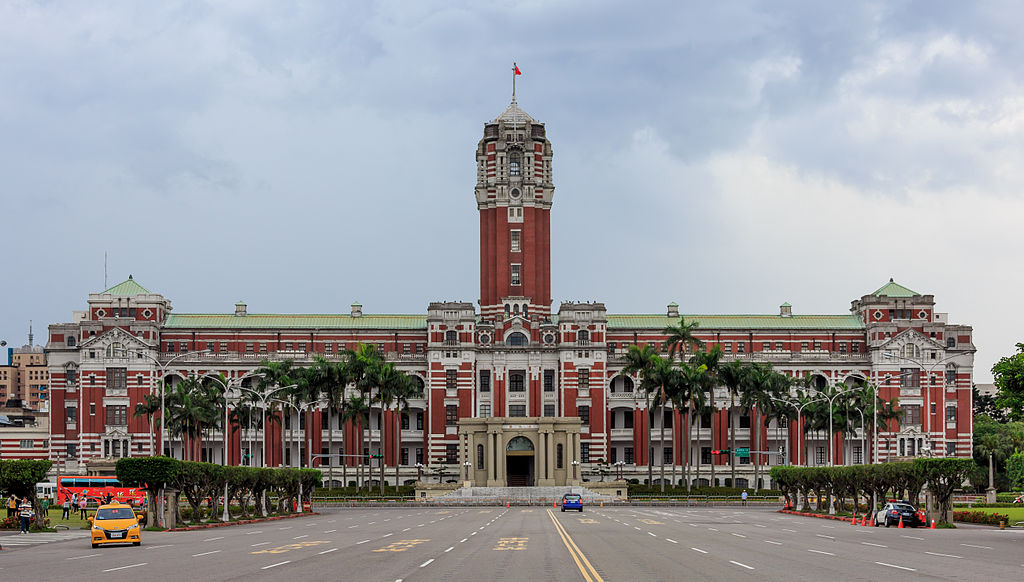
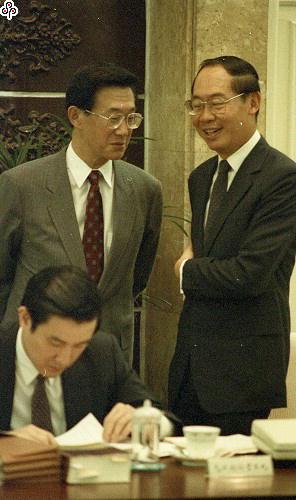
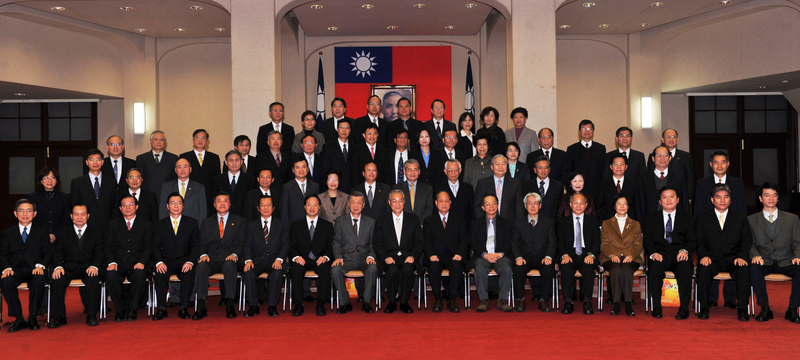
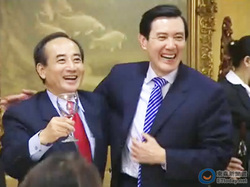
 RSS Feed
RSS Feed
